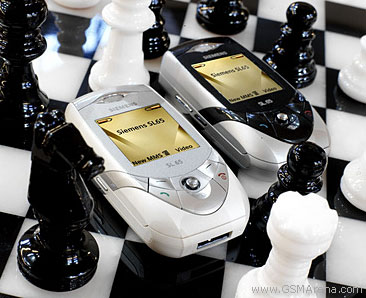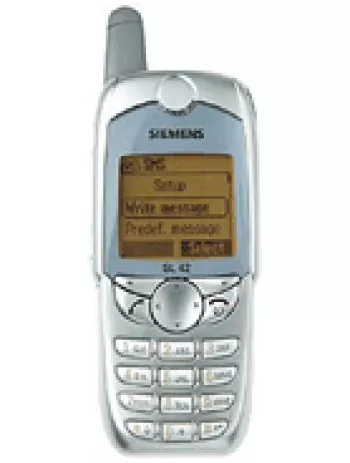
Overview of Siemens SL65
The Siemens SL65 is a feature phone that was launched in 2004, discontinuing soon after. Despite its brief presence in the market, it was known for its compact design and the unique sliding mechanism that captivated many users at the time. This phone represented an era when mobile devices were transitioning toward offering more multimedia and connectivity options while still retaining a simple user interface.
Design and Build
The Siemens SL65 featured a slide design, which was quite novel for its time. This allowed users to slide open the phone when taking calls or typing text messages, which some found to be stylish and sleek. The dimensions of the phone were 90 x 47.6 x 21 mm, and it weighed approximately 99 g, making it quite portable. Available in two classic colors, Ivory and Ebony, the SL65 remained elegant and suitable for both professional and casual environments.
Display
The SL65 came with a 1.8-inch TFT display capable of showing up to 65,000 colors. The screen resolution was 130 x 130 pixels, which, while modest by today’s standards, was sufficient for basic multimedia viewing at the time. The 1:1 display with a pixel density of approximately 102 ppi made for an adequately clear display given its purpose and the era of its release.
Camera Capabilities
Incorporating a VGA camera, the Siemens SL65 allowed users to capture still images and videos. Although the 0.3 megapixel camera was basic and might not compare to modern smartphones, it was a valuable feature that initiated many into mobile photography. There was no selfie camera feature in this device.
Network and Connectivity
The Siemens SL65 supported GSM technology with bands covering GSM 900 / 1800 / 1900. This tri-band capability made it practical for international travelers within regions that supported these frequencies. As for data communication, it included GPRS Class 10 for mobile internet services, though EDGE was not supported. Connectivity options included an infrared port for file sharing, whereas Bluetooth and WLAN were not available. The phone also came with a proprietary USB port for charging and data transfer.
Memory and Storage
With an internal storage capacity of 11MB, the SL65 was able to store a limited amount of data directly on the device. The phone did not feature a card slot for expandable memory, which restricted file storage options. Despite this limitation, the phone could efficiently manage phonebook entries and call records, keeping track of up to 100 dialed, received, and missed calls each.
Battery Life
This device was powered by a removable Li-Ion 700 mAh battery, model EBA-650. The battery life was decent, given its capability to provide up to 230 hours of standby time and up to approximately 4 hours and 3 minutes of talk time. This was sufficient for ordinary use throughout the day without needing frequent recharging, an essential feature for users at the time.
Messaging and Internet Access
Siemens SL65 supported various messaging formats, such as SMS, MMS, email, and instant messaging, making communication versatile for users. It included a WAP 2.0/xHTML browser, allowing users to access the internet, albeit with limitations typical of feature phones of that era.
Additional Features
The SL65 was equipped with polyphonic ringtones that could be downloaded, and it offered a number of pre-installed games, including Golf and Rally, with the option to download more. Java support with MIDP 2.0 allowed users to install additional applications compatible with the phone’s operating system. The lack of sensors, GPS, and modern connectivity features align with the minimalistic approach of feature phones. However, the device stood out because it brought a concerted effort to cater to multimedia needs with the hardware limitations of its time.
Conclusion
The Siemens SL65 remains a charming relic from the early 2000s, marking a transitional period in mobile phone evolution. Its design, while simple, offered robust functionality that met the needs of users during its time. Despite its discontinuation, the SL65 exemplifies an era of innovation in ergonomic phone design and basic multimedia functionality. Though not equipped with the complexities seen in modern smartphones, it served satisfactorily as a reliable communication tool and introduced features which paved the way for future innovations in mobile technology.
Key Features of Siemens SL65
- Compact size with dimensions of 90 x 47.6 x 21 mm and a weight of 99 g for easy portability.
- TFT display with 65K colors, offering a resolution of 130 x 130 pixels.
- GSM technology with support for 2G bands GSM 900/1800/1900.
- Internal memory of 11MB and ability to store up to 100 records of dialed, received, and missed calls.
- VGA main camera with video capability.
- Infrared port for data transfer.
- Supports SMS, MMS, Email, and Instant Messaging for a variety of communication options.
- WAP 2.0/xHTML browser for internet access.
- Java support (MIDP 2.0) with built-in games and the ability to download additional games.
- Removable Li-Ion 700 mAh battery providing up to 230 hours of standby time and up to 4 hours 3 minutes of talk time.
- Available in two colors: Ivory and Ebony.
Disadvantages of Siemens SL65
- No EDGE support for faster internet connectivity.
- Discontinued model, meaning no official support or updates.
- Limited internal memory of only 11MB and no card slot for expansion.
- No front-facing selfie camera.
- Lacks Bluetooth and WLAN, limiting wireless connectivity options.
- No GPS positioning feature.
- No 3.5mm headphone jack for standard audio connection.
- Proprietary USB connection instead of standard USB ports.
- Low-resolution display with only 65K colors and ~102 ppi density.
- Small screen size with a relatively low screen-to-body ratio (~24.4%).
- No radio feature available.
- Battery capacity is low by modern standards at 700 mAh, leading to shorter usage time.











View Also
More Phones
All Rights Reserved +14266 Phones © Mobilawy 2025

























